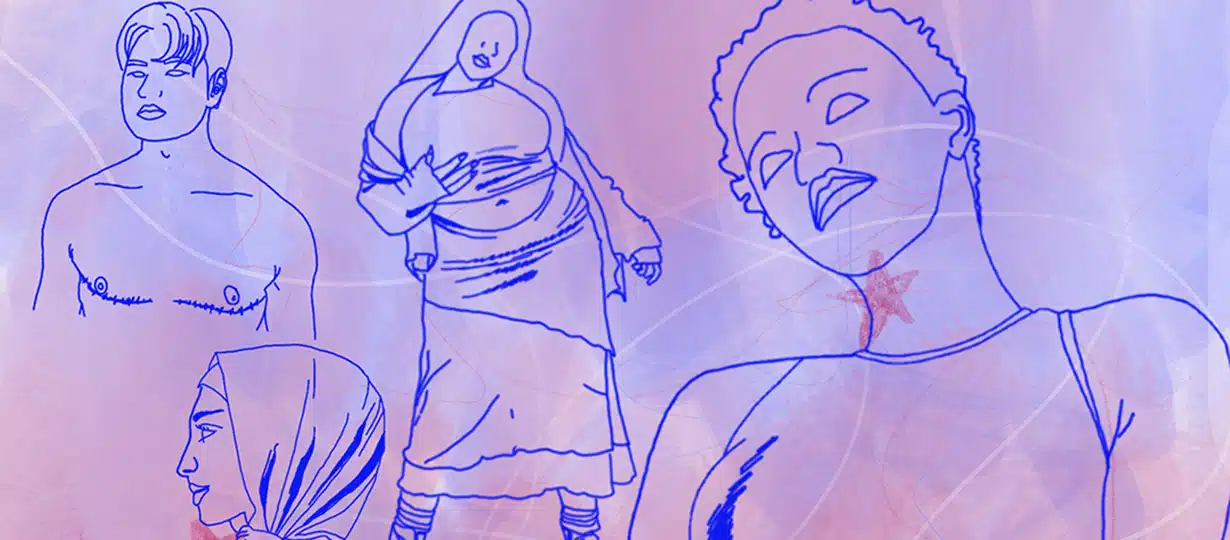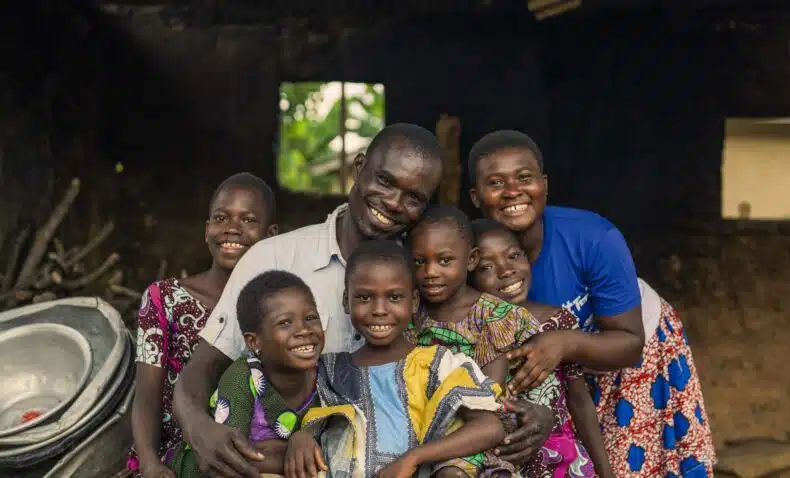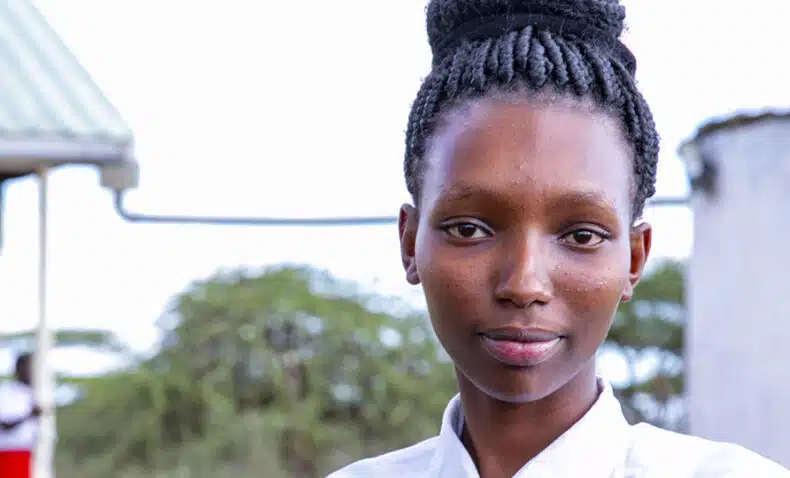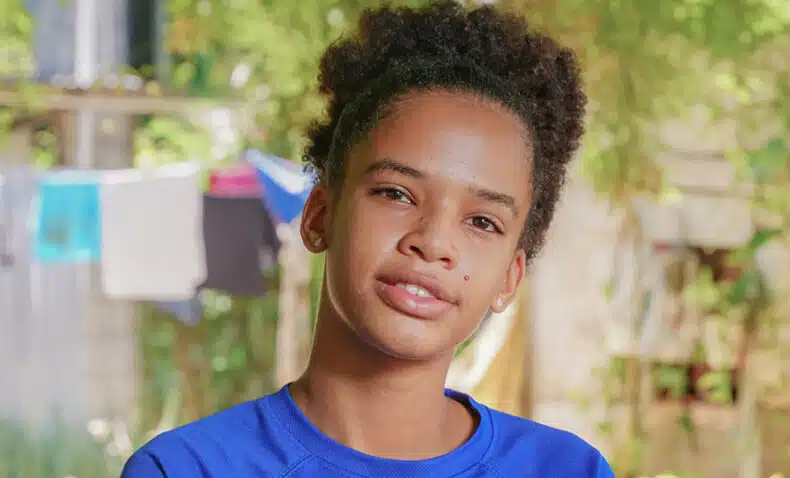An estimated 21 million adolescent girls give birth every year in low and middle income countries (WHO). Teenage pregnancy can end a girl’s education, and give them adult responsibilities before they’re ready.
Pregnancy and birth related complications are also the leading cause of death for adolescent girls aged 15 to 19 in the developing world (United Nations Population Fund).
When it comes to periods, girls face taboos, misinformation and often lack affordable menstrual products and access to clean, private toilets. As a result many girls are forced to skip school or even drop out altogether.
500 million girls and women globally lack the facilities to properly manage their periods (World Bank).
How Plan International Australia are helping
At the grassroots level we work with young people, their families, and local partners to ensure that their sexual health needs are met. We directly involve young women and men, helping them to identify problems and find solutions.
We’ve delivered safe and sustainable period products to women in South East Asia. We’ve also supplied hygiene kits to families impacted by emergencies and COVID-19, which include sanitary items to help women and girls manage their periods.
The gendered impacts of COVID-19 are being seen all over the world. Meeting the critical menstrual hygiene management needs of women and girls is central to an inclusive global response that promotes equality and social inclusion. Periods in a Pandemic looks at how the current implications of COVID-19 are exacerbating key challenges for people who menstruate around the world.
We also champion policies and funding to improve access to quality sexual and reproductive health services and information in every context.
A tough period
Wherever there is poverty, there is period poverty, and this can have profound and lifelong impacts on adolescent girls’ lives: it can prevent them from going to school and deny them an education; stop them from playing sports; significantly affect their mental health and wellbeing; impact their employment; and prevent them from accessing basic necessities such as food or electricity.
In April 2023, Plan International Australia (PIA) commissioned YouGov to collect data on the cost of living crisis and period poverty amongst 500 Australian people who menstruate, in both city and regional areas, aged 18-42. PIA designed the survey together with Sexual and Reproductive Health Rights experts; Water, Sanitation and Hygiene (WASH) professionals; and Gender in Emergencies specialists.
This Australian data forms part of a wider, global report and builds on PIA’s previous research into how people managed their periods during the COVID-19 pandemic.

Ending period shame
No one should be held back because of their period. Yet, for many girls and young women, the stigma and shame attached to menstruation can place their physical, sexual, and mental health at risk.
Many girls around the world have little access to sanitary products and adequate toilet facilities at school, which makes managing their period incredibly difficult. It restricts their movements when they have their period, and this affects their attendance and performance at school.
Taboos, myths and shame surrounding menstruation can also lead to teasing, shaming and exclusion from daily activities, which all have a negative effect on a girl’s sense of dignity.
Roughly 800 million people between the ages of 15 and 49 are menstruating right now. And despite the fact these 800 million people menstruate every month, many still feel embarrassed and uncomfortable when it comes to just talking about it.
Periods are a universal fact of life wherever you live, which is why it’s time to smash this damaging stigma.
Photo: Santaram, 42, gives packet of sanitary pads to his daughter. © Plan International
Ensure girls can manage their period
Teaching girls in Zambia about their sexual and reproductive health and rights
In Zambia, Chabala Siame, a community development facilitator, explains that the women who conduct the initiation ceremonies are receiving training to learn how they can continue preparing girls to be women without putting them at risk.
Deeply entrenched social and cultural norms often normalise violence against women and girls and even make it a legitimate and acceptable practice. These traditions are handed down from generation to generation, with older women teaching younger girls that they are inferior to men and must tolerate all kinds of violence and abuse at the hands of their husbands.
Before, they were telling girls to persevere even if they got beaten by their partner. Now they are teaching them that there is zero tolerance for violence, and that boys have no right to violate a girl or to rape her, and that girls can and should report such cases- Chabala says
The initiators are also involving boys in the training. With high rates of sexually transmitted infections (STIs) and unintended early pregnancies in Zambia, teaching both girls and boys how to make informed decisions about sex and developing healthy relationships has never been so important.
“Before they would tell girls who had starting menstruating that they should not play with boys, and not allow boys to touch them because then they could get pregnant. Now they teach them about contraceptives and the right to make their own decisions about their bodies,” says Chabala.
Photo: Chabala, trains traditional initiators how to prepare girls for womanhood without putting them at risk. © Plan International / Izla Bethdavid




